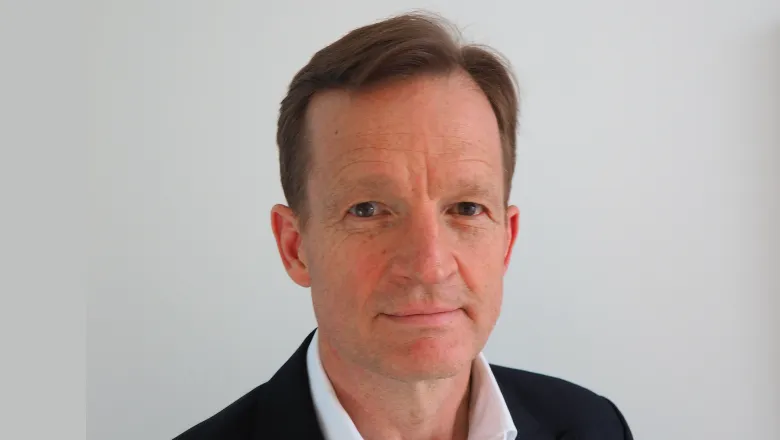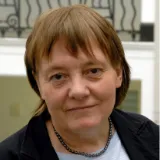“To take a child in absolute poverty, to find their fathers and then responsiblise the father, sometimes with full acceptance and consent and sometimes with the full force of the father’s home legal jurisdiction, fundamentally changes these children’s lives for the better.”
Professor Andrew MacLeod, Visiting Professor, King's Forensics
18 November 2024
Andrew MacLeod named 'Legal Hero' for work on overseas sexual exploitation
Professor Andrew MacLeod has been recognised by the Law Society for helping to bring justice to children born overseas who have been abandoned by their fathers.

Named a 'Legal Hero 2024', Professor MacLeod, Visiting Professor, King's Forensics, was recognised for his work with Hear Their Cries, a charity he co-founded which locates the fathers of children born as a result of sex tourism or exploitation by aid workers and peacekeepers.
The charity utilised the same genetic genealogy technology used to capture the 'Golden State Killer' (GSK) in California in 2017 to trace the foreign fathers of children born in the developing world. With much of its work so far concentrating on the Philippines, it has since been able to seek appropriate support and citizenship rights on behalf of the children.
The issue of sexual exploitation and abuse (SEA) in the humanitarian sector is not new. Hear Their Cries has estimated that over the last decade there could be up to 30,000 incidents of SEA perpetrated by peacekeepers and 60,000 by all UN staff. However, the exact numbers are difficult to quantify due to a lack of analysable data. Instances of sex tourism may also be rife in parts of the developing world, but the true scale of this is unknown.
A humanitarian lawyer by training as well as a military veteran, Professor MacLeod co-founded Hear Their Cries in 2020. A journalist’s account of the tragedy of Filipino children, abandoned by their transient fathers, combined with publication of how the GSK was identified, led the charity to take things further for these children. As of 2022, up to six fathers of children born in the Philippines had been successfully identified using genetic genealogy technology. Identified children were asked to provide a sample of their DNA by spitting into a tube. Their genetic information was then compared against those on commercial public databases, allowing researchers to map out extended relatives. Research was then conducted into these relatives to work out family relationships and ultimately identify the father.
On behalf of the children, the charity then locates their fathers and allows the children to know their heritage, their extended family and seek appropriate child support. When this is not forthcoming, it can escalate to legal action and force the father to provide support through the courts in their home jurisdiction. The children may also be able to gain citizenship of their father's country.
The work of Hear Their Cries informed the King's project, 'InterSEC: action', co-led by Professor MacLeod alongside his King's Forensics’ partners, Denise Syndercombe Court, Professor of Forensic Genetics, and Professor Kim Wolff, Director of King's Forensics and Head of the Drug Control Centre. Identification and naming of a parent has significant ethical and privacy issues and, with the aim of using this technology within King’s, the researchers hope to be able to facilitate the process in a scientifically robust approach that would best protect and support the individuals to learn more about their parentage.
InterSEC: action has two main aims. The first was to carry out a systematic review of the state of the knowledge base and attempt to estimate the global extent of sexual exploitation in the Aid industry. The second phase seeks to conduct an academically rigorous pilot study using genetic genealogy to sample abandoned (now adult) children in parts of the world where this activity is more common.
Key to the study will be the protection of the individuals’ genetic material along with fully informed consent to ensure that participants understand the wider implications of the process that may, or may not, identify a biological father. The information will be provided to the subject for them to take forward, should they desire. The project will not be involved from this point but can offer advice and contact with legal charities if that is wanted.
The InterSec project is a pilot project and limited in its extent. We aim to publish the findings of the research and to use this to better understand the safeguards that must be employed when working in a highly sensitive process. If successful we aim to establish an international service using genetic genealogy technology to identify future victims of such abuse in different parts of the world to enable them to obtain justice whilst safeguarding their privacy and adhering to the ethical principal of vulnerability."
Denise Syndercombe-Court, Professor of Forensic Genetics



